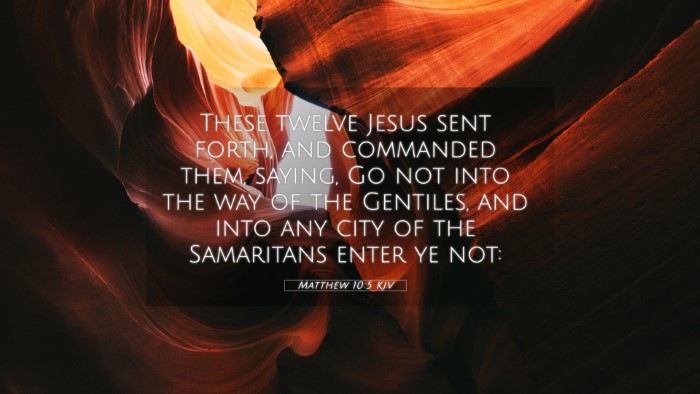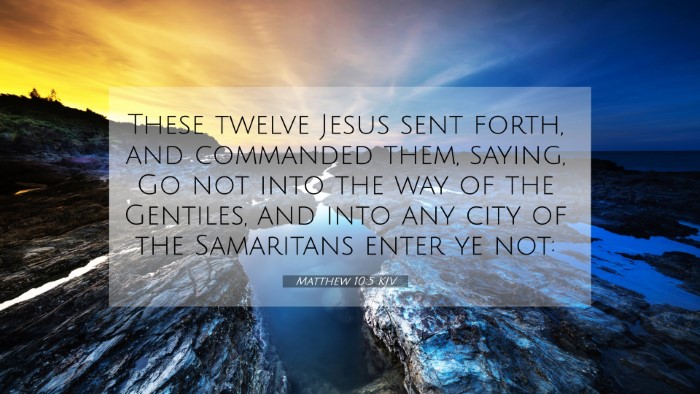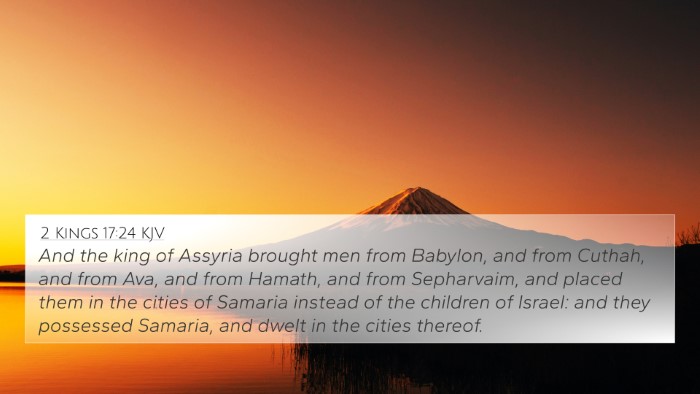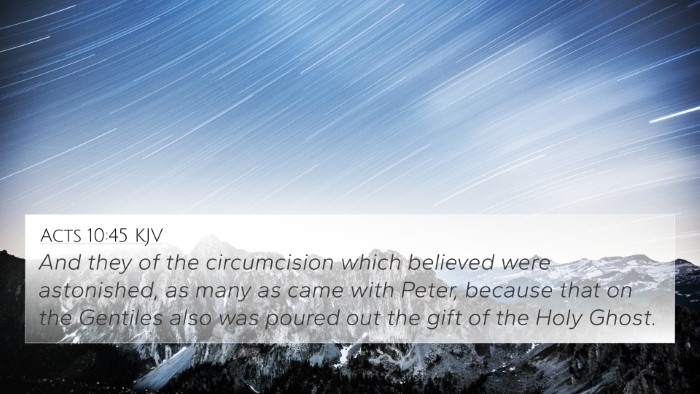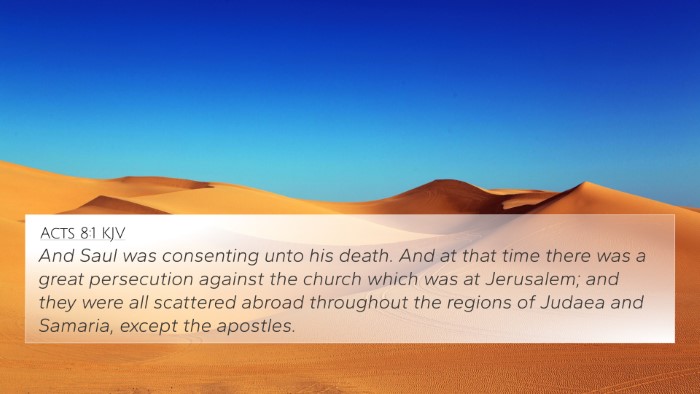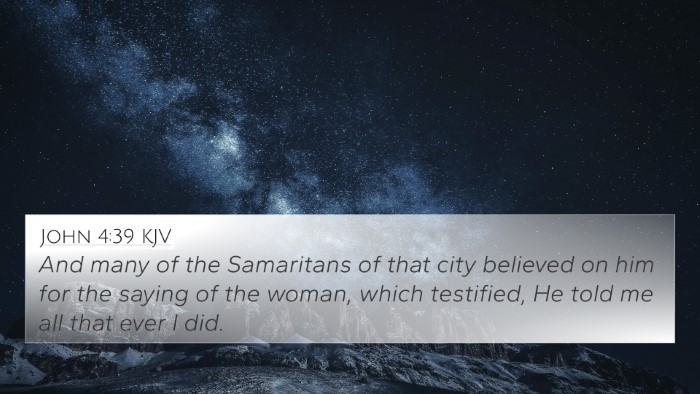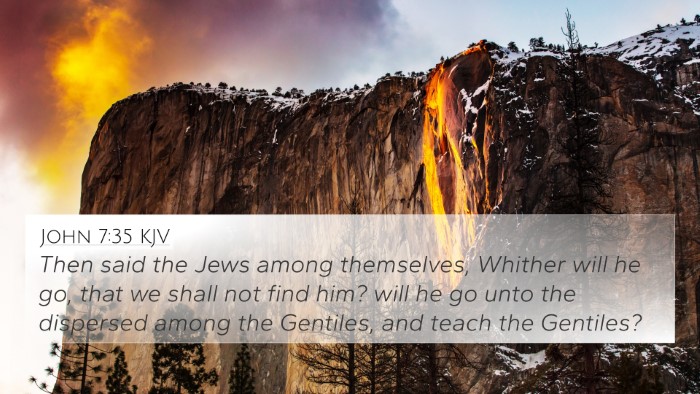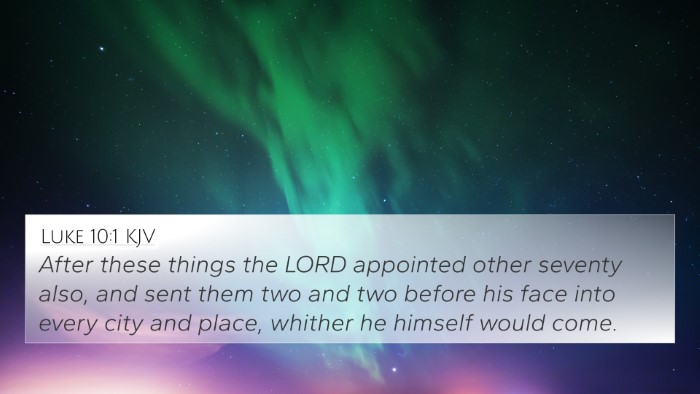Understanding Matthew 10:5
Bible Verse: Matthew 10:5
“These twelve Jesus sent forth, and commanded them, saying, Go not into the way of the Gentiles, and into any city of the Samaritans enter ye not.”
Summary of the Verse
This verse details a significant directive given by Jesus to His twelve disciples, focusing on their mission and the specific audiences He instructed them to reach. Jesus emphasizes the importance of targeting the lost sheep of Israel rather than venturing into Gentile territories or the cities of Samaritans during their ministry.
Commentary Insights
This section combines insights from various public domain commentaries.
Matthew Henry's Commentary
Matthew Henry explains that this command reflects the strategic nature of Jesus' mission. Initially focusing on the Israelites illustrates God's covenantal relationship with His chosen people, highlighting the need for the disciples to prioritize the house of Israel before expanding their outreach. This necessity is significant for understanding the progressive revelation of God's plan.
Albert Barnes' Notes
Albert Barnes offers the suggestion that by instructing the disciples to refrain from Gentile and Samaritan territories, Jesus was establishing a foundation for the later Great Commission found in Matthew 28:19. This approach served to prepare the disciples for future ministry while reinforcing the exclusive focus on the Jewish community initially. Barnes also underscores the socio-political context, where relations between Jews and Samaritans were strained.
Adam Clarke's Commentary
Adam Clarke emphasizes the historical context of this verse, noting the expected arrival of the Messiah for the Jewish people. Clarke asserts that Jesus' directive illustrates preliminary steps in His ministry, ensuring that the Jewish nation received the gospel first. He suggests that this approach reveals a divine order in God's redemptive plan.
Thematic Connections
This verse relates to larger themes in Christian theology, such as the idea of divine election and the progressive nature of Jesus' mission. It sets the stage for understanding the expanding scope of the Gospel beyond Israel.
Bible Cross-References
- Matthew 15:24: “But he answered and said, I am not sent but unto the lost sheep of the house of Israel.”
- Romans 1:16: “For I am not ashamed of the gospel of Christ: for it is the power of God unto salvation to every one that believeth; to the Jew first, and also to the Greek.”
- Luke 10:1: “After these things the Lord appointed other seventy also, and sent them two and two before his face into every city and place, whither he himself would come.”
- Acts 1:8: “But ye shall receive power, after that the Holy Ghost is come upon you: and ye shall be witnesses unto me both in Jerusalem, and in all Judaea, and in Samaria, and unto the uttermost part of the earth.”
- John 1:11: “He came unto his own, and his own received him not.”
- Matthew 28:19-20: “Go ye therefore, and teach all nations, baptizing them in the name of the Father, and of the Son, and of the Holy Ghost.”
- Matthew 9:36: “But when he saw the multitudes, he was moved with compassion on them, because they fainted, and were scattered abroad, as sheep having no shepherd.”
Connections Between Bible Verses
The restriction of the disciples' mission to the Jews emphasizes God's plan of salvation, mapping out a key transition in the Gospel's universal outreach. A careful analysis reveals:
- Links between this directive and the commissioning of the disciples in Matthew 28, showcasing the fulfillment of Jesus' initial mission.
- The relationship between the directives of the Old Testament prophets and Jesus' contemporary approach towards His mission in the New Testament.
- The progressive revelation seen in the ministry of Jesus and the subsequent outreach of the Apostles as outlined in the Book of Acts.
Cross-Referencing Biblical Texts
For those engaged in a more thorough study, several tools and methods exist for cross-referencing biblical texts:
- Bible Concordance: A tool that allows readers to look up keywords and discover where they appear throughout scripture.
- Bible Cross-Reference Guide: Provides guides to help identify cross-referenced passages across different books of the Bible.
- Bible Chain References: Systematically links related verses, guiding readers through thematic connections.
Application and Reflection
In understanding Matthew 10:5, one should reflect on the phase-specific nature of God's call and the relevance of cultural context in ministry. As believers today, this verse can inform the priorities in spreading the Gospel, encouraging engagement with those who have not yet heard the message, while remembering the sequence of God's kingdom expanding.
Conclusion
The passage illustrates an important phase in the ministry of Jesus and holds theological implications for understanding divine election, the nature of Christ's mission, and the eventual universal outreach of the Gospel. By investigating cross-references and thematic connections, one can enhance their understanding of scriptural teachings and divine purpose in Biblical narratives.

